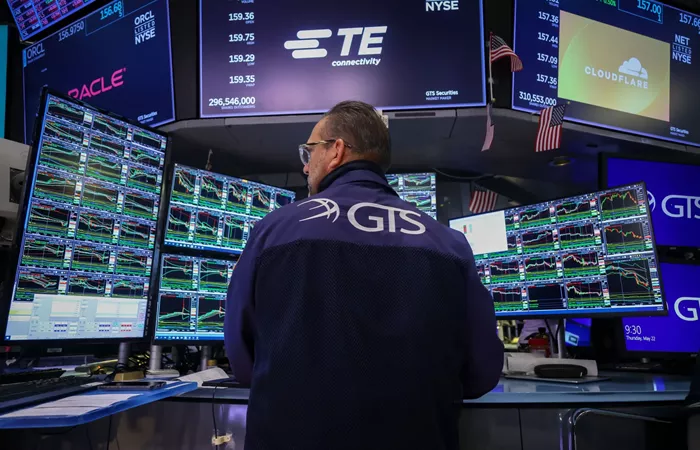U.S. stock futures moved higher on Sunday night after former President Donald Trump announced he would delay his proposed 50% tariffs on the European Union.
The tariffs, initially expected soon, will now be postponed until July 9. The move eased investor concerns following a turbulent end to last week.
Markets are also closely watching Nvidia Corporation (NASDAQ: NVDA), which will release its earnings report this week. The company’s results are expected to provide insights into the health of the artificial intelligence (AI) industry.
However, investors remain cautious about potential challenges, particularly U.S. restrictions affecting Nvidia’s sales in China.
As of 8:26 p.m. ET (00:26 GMT), S&P 500 futures rose 0.8% to 5,865.50, Nasdaq 100 futures gained 1% to 21,177.25, and Dow Jones futures climbed 0.7% to 41,972.00.
The rise in futures comes ahead of the Memorial Day holiday on Monday, which typically brings lighter trading volume. On Friday, Wall Street saw sharp losses after Trump threatened new tariffs on the EU.
Trump announced the tariff delay on social media, following a phone conversation with European Commission President Ursula von der Leyen. He said both sides agreed to begin formal trade discussions immediately. Von der Leyen also pointed to improving relations with Washington.
Last Friday, Trump had threatened a 50% tariff on EU goods due to frustration over slow trade negotiations. He also mentioned a possible 25% tariff on Apple’s (NASDAQ: AAPL) imported iPhones and other smartphones. These remarks shook investor confidence, leading to a sharp market drop.
The S&P 500 fell 0.7% to close at 5,802.82 on Friday. The Nasdaq Composite declined 1% to 18,737.21, while the Dow Jones Industrial Average dropped 0.6% to 41,603.07.
Nvidia will report its fiscal first-quarter earnings on Wednesday, and investors are eager to see if the company’s strong AI-driven performance continues. Despite new U.S. restrictions on chip sales to China—one of its key markets—Nvidia may still report strong results.
Analysts expect robust demand for AI technology to offset some of the pressure from reduced China sales. Nvidia’s largest customers—big tech companies known as AI hyperscalers—have continued spending heavily on AI infrastructure throughout 2025.
Over the weekend, Reuters reported that Nvidia plans to launch a more affordable AI chip from its Blackwell product line for the Chinese market later this year. This move could help the company maintain some presence in China despite regulatory challenges.
Related topics:


